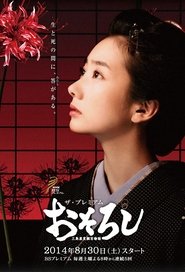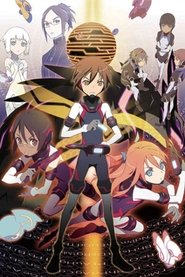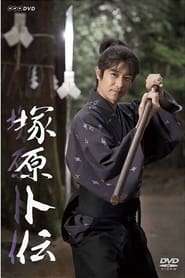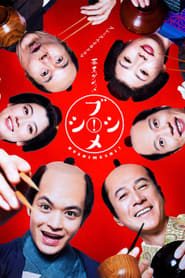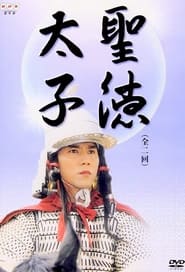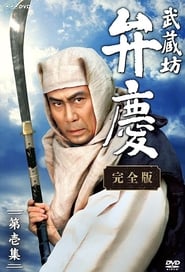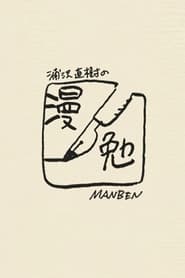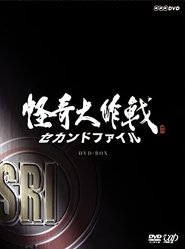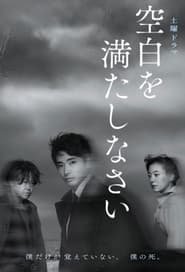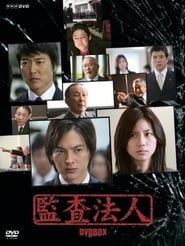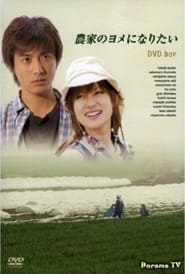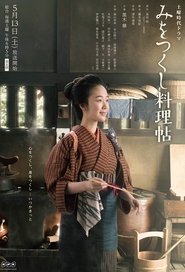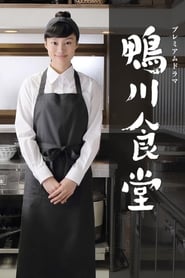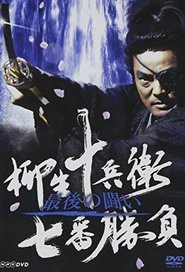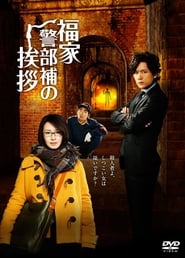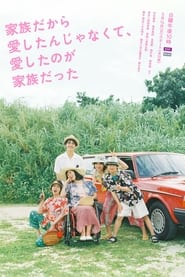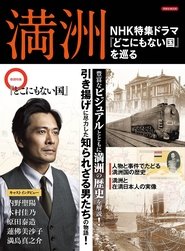Nhk TV Series - Page 11
-
I'll Still Love You in 10 Years
2010
star 1The story focuses on 26-year-old Rika (Ueto), a single editor who is unskilled in love. The story starts when a man (Uchino) appears before her, telling her that he is her husband from 10 years in the future. He informs her that she will meet the young version of himself in a few days, but begs her not to marry him. Tokyograph -
Element Hunters
2009
star 1In the year 2029, chemical elements such as oxygen, carbon, gold, molybdenum, and cobalt were continually disappearing from Earth. These disappearing elements ultimately disrupted the environment and led to the destruction of various homes, cities, and even entire countries. Researchers discovered that the vanishing elements drained into a planet called Nega Earth, located in another dimension. Element dematerialization was occurring rapidly; thus, to save Earth, three special pre-teens picked by the space colony government formed the Element Hunters. Their job was to transport themselves to Nega-Earth to battle monsters called Q-EXes and retrieve lost elements. However, out of their own concerns, Ren, Chiara, and Homi, three average middle school students from Earth, banded together to also become Element Hunters. With the help of Professor Aimee Carr and Juno, they are able to help save their own planet. -
Tsukahara Bokuden
2011
star 8.5Takahara is a legendary figure in the Warring States Period of Japan. He was born in Kagoshima, the sacred place of sword. He learned the art of Taidao in Kagoshima from childhood. He had faced many life-and-death battles in his life, but he had never been injured at one time. In this new play, the story will be unfolded centering on the youth period of Sakahara, which has never been shown on the big screen before. -
Bushimeshi!--The Samurai Cook
2017
star 8Set during the Bakumatsu (final years of the Edo period). Sakai Banshiro is a lower-class samurai. Leaving his family behind, he works at the lord’s castle. He consoles and solves worries of the people by making food from recipes sent from his wife. -
Prince Shotoku
2001
star 6In the late 6th century the leaders of the Yamato Dynasty had no clear plan for the creation of a unified state. Battles still raged among various warrior clans. Shotoku Taishi, second son of Emperor Yomei, strived to create a new nation out of this chaos. NHK captures this great man from a time in history rarely depicted on screen, in a story of epic proportions. Shotoku Taishi is known mainly through legends and myths and has been viewed as more god than man. The elaborate and colorful costumes of the time and the beauty of ancient Japan enhance this fascinating historical drama. -
Musashibo Benkei
1986
Musashibo Benkei
1986
After being carried in his mother’s womb for three years, Benkei is born with long hair and teeth and the body of a small child. It is said that he immediately laughed and commented on the brightness of the outside world, leading local people in his native Kii (modern Wakayama) to proclaim that he is a devil. Abandoned on a mountainside, he is adopted by Dainagon, a Kyoto resident who rears him until age seven when he leaves to become a monk. Thrown out of the monastery for his violent behavior, Benkei wanders Japan in search of enlightenment, though only trouble seems to find him. After accidentally causing a temple to burn down, he decides to begin a quest to defeat 1,000 of the hated Heike samurai in battle and donate their swords to a temple. Obtaining the first 999 swords proves relatively easy but the final weapon belongs to Yoshitsune, a young boy whose appearance belies his great skill as a warrior. -
Manben: Behind the Scenes of Manga with Urasawa Naoki
2015
star 8.2Urasawa Naoki no Manben (Naoki Urasawa's Manga Exertions) is a TV Documentary airing on NHK Educational TV. It follows acclaimed mangaka Naoki Urasawa (creator of 20th Century Boys and Monster) as he sets out to break new ground for manga even further than he already has. In an attempt to educate viewers about manga and preserve the intricate craftsmanship and process of Japanese artists on video for future generations, he invites a manga artist to have their workplace filmed for a couple of days, so as to display them in the process of crafting chapters for their current serializations. After the footage has been shot, Urasawa meets with the artist and they discuss the footage, talking about the artist's workplace and workflow, the difficulties involved in the mangaka lifestyle, their reasons for drawing manga in the first place, and their perspective on the current industry and their own work. -
Kaiki Daisakusen - Second File
2007
star 8Modern remake of the Kaiki Daisakusen / Operation Mystery tv show. A special unit called SRI (Science Research Institute) is investigating mysterious cases. -
Fill In the Blanks
2022
star 7.5News of "revived people" who should have died humans come back to life was reported all over the world. Meanwhile, Tetsuo Tsuchiya wakes up in the conference room where he works, but his colleague reports that he died of suicide three years ago. However, Tsuchiya, who had a wife and a son and lived a happy life, could not commit suicide, and thought that he was actually killed, lives while pursuing the reason for his death. It depicts how you know the meaning of things, dying, and happiness. 日本語 English -
The Auditor
2008
The Auditor
2008
The setting is Japan. After the bursting of its asset-inflated "bubble economy" in 1990, the country is suffering an economic hangover. Foreign capital is flooding in, and great transformations are underway. Accountant Kenji Wakasugi's auditing firm is divided into two camps. The "doves" favor overlooking what are called "window-dressed accounts" so as to allow businesses to recover their financial footing. The "hawks" won't ignore the slightest infraction, holding that inferior firms should be allowed to perish. Wakasugi himself believes in strict accounting practices -- until he is brought face-to-face with the distress and even deaths of employees of companies forced to go under. This is a fictionalized report from the economic front lines, replete with human interest. -
I Wish To Be A Farmer's Wife
2004
star 6About a city girl (Fukada) who falls in love and wants to become the wife of a farmer (Nakamura). -
The Happiness Recipe
2017
star 8.5In 1802, 8-year-old Mio lost her parents in a river flood in Osaka and feels all alone after she is also separated from her childhood friend Noe. She is saved by Yoshi, the proprietress of "Tenman Icchōan", one of Osaka's famous restaurants, whom she happened to meet. -
Hitotsubashi Kiriko's Crime Diary
2022
star 8Hitotsubashi Kiriko is sinking into a pit of sorrow when her one and only best friend whom she lived with for three years, dies of illness. Living on a pension and working part-time is not easy, and the thought of having solitary death terrifies her. One day, she was fascinated by the statement of an arrested person she saw on TV which inspires her to commit crime so she could live in prison. And so, Kiriko's "Life in Prison" plan began. As Kiriko proceeds with her crime plan, she finds new experiences and encounters. -
Kamogawa Shokudo
2016
star 6Customers relying on a single line advertisement “Search for food with memories”, finally arrive at Kamogawa Shokudo, which has no signboard or fabric curtain. Those who come to this inconspicuous eatery near Higashi Honganji in Kyoto are people of today who have troubles. Work, family, life, love, interpersonal relationships… Although their troubles are wide-ranging, the eatery’s poster girl Kamogawa Koishi accepts customers’ troubles with sincerity while her father, Nagare uses the instincts and powers of observation honed as a detective, to identify what meals customers truly desire and demonstrates his skills by recreating them. Customers who eat the “food with memories”, which are the fruits of the efforts of Koishi and Nagare, will leave Kamogawa Shokudo, finding the courage to live and pleasures of life. -
紙の月
2014
紙の月
2014
-
Legendary Swordfights of Yagyu Jubei
2005
A story of Yagyu Jubei, master swordsman from the well-known Yagyu-Shinkage school in the Edo period. Even decades after the establishment of the Tokugawa shogunate, many were framing plots to topple Tokugawa's political system. The master of Yagyu-Shinkage school, Yagyu Munemori who serves the third Tokugawa shogun Iemitsu is commissioned to keep an eye on Daimyo lords all around Japan. Munemori's eldest son, Jubei starts a stealthy trip to fight against those who engage in secret maneuvers. Enjoy sword fighting actions between Jubei and his rivals. -
Fukuie Keibuho no Aisatsu
2014
star 7.7Assistant Inspector Fukuie does not look like an assistant inspector but once she starts an investigation, she takes no notice of anyone as she searches for the key to find out the truth. She does not care for the hierarchical relationship of the organisation or career advancement. If she has doubts, she will not listen to her superior and will persist in investigating to the end. Fukuie’s boss Inspector Ishimatsu is completely different from her. He places importance on the organisation and discipline, is rigid and strait-laced. Ever since Fukuie became his subordinate, his pride has been in tatters because she loves to disregard his instructions and investigate on her own even though this eventually results in success and he gets credit for her achievements. His principle is to investigate using orthodox methods, but the results that Fukuie delivers goes against this and makes him feel ashamed. -
I Didn't Love You Because I Was a Family, But I Loved You as a Family
2023
star 8.7Follow the daily lives of the Kishimoto family. -
Dokonimo nai Kuni
2018
Dokonimo nai Kuni
2018

